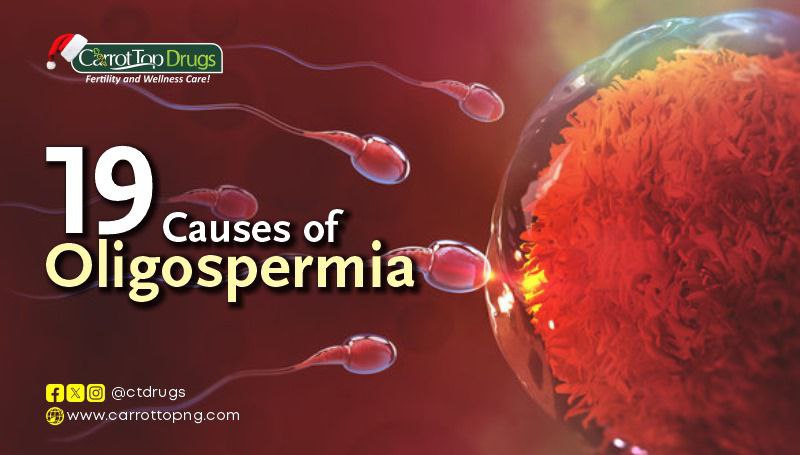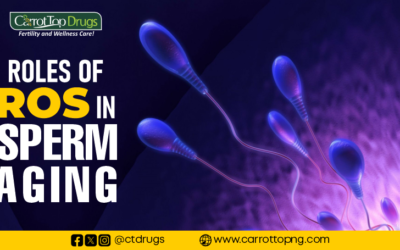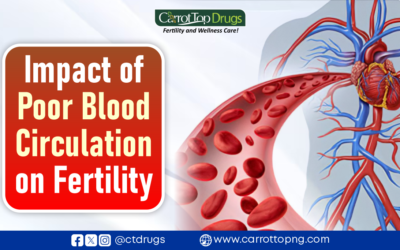Introduction
Oligospermia, marked by a lower-than-normal sperm count, poses a challenge to the dream of parenthood. Oligospermia is a condition in which a man has less than the expected number of sperm cells needed to fertilize a woman’s egg. Most health organizations use the value of 20 million cells per mL. Any value less than this value is referred to as oligospermia. This article’s aim is to uncover the causes of oligospermia, aiming to shed light on the factors that impact male fertility.
Statistics of Men With Problems With Their Sperm
According to recent studies, it is estimated that approximately 1 in 20 men worldwide may experience oligospermia at some point in their lives. This statistic underscores the widespread nature of the condition, touching the lives of individuals and couples irrespective of geographical boundaries.
Internal Causes of Oligospermia
When it comes to understanding the causes of oligospermia, there are both internal and external causes. Internal causes have to do with those that are intrinsic to the man while external causes have to do with the influence of the environment on the man. In this section, we would shed light on how genetic, hormonal, and other internal elements can contribute to this fertility challenge.
Age and Oligospermia
It is evident that aging has a profound impact on sperm quality. The aging process affects the body’s ability to produce sperm efficiently, leading to a decrease in sperm count and potential changes in sperm quality. As men age, testosterone levels changes and hormonal balance is crucial for optimal sperm production
As men get older, the likelihood of genetic abnormalities in sperm rises, adding a layer of complexity to the challenges associated with oligospermia.
Genetic Predisposition
Of all the causes of oligospermia, genetic factors take center stage. A predisposition for oligospermia can be influenced by family medical history. Recognizing these inherited traits becomes crucial in understanding potential internal causes that might affect sperm production.
Hormonal Imbalances
There are several hormones within the body, with testosterone as a lead performer of reproductive functions in men. Disturbances in these hormonal levels can throw off the rhythm, disrupting the intricate process of sperm production. This disruption often translates to a decreased sperm count.
Nutrition
Now, let’s turn our attention to the internal factors related to diet and nutrition. Just as a well-balanced diet keeps our bodies in harmony, it plays a significant role in sperm health. A deficiency in essential nutrients becomes an internal cause that adversely impacts the delicate balance—a crucial insight into the causes of oligospermia.
Disorders of the Reproductive Structures
Another one of the internal causes of oligospermia is any disorder affecting the male reproductive system. Whether it’s issues with the testicles or related organs, these internal factors contribute to the complexity of oligospermia.
Infections and STDs
Internal infections, especially those of the sexually transmitted variety, are also causes of oligospermia. These infections can quietly affect sperm quality and quantity, underscoring the importance of maintaining internal reproductive health.
Varicoceles
Imagine an internal landscape where veins enlarge within the scrotum—a condition known as varicoceles. This internal environment becomes a silent contributor, creating hurdles in the seamless production of sperm—a unique angle in the causes of oligospermia.
Cryptorchidism
Undescended testicles, or cryptorchidism, present another internal factor in the oligospermia narrative. Impacting the development of sperm, this condition highlights the intricate web of causes influencing male fertility.
How Habits Influence Sperm Count
In the exploration of the causes of oligospermia, let’s unravel the chapter that revolves around our daily habits. Simple lifestyle choices, from what we eat to how we exercise, and even our personal vices, can significantly shape the narrative of sperm production.
Exercise
Now, let’s spotlight exercise—an often underestimated hero in the causes of oligospermia. Regular physical activity not only keeps the body fit but also promotes healthy sperm production. It’s like a workout routine tailored for the well-being of sperm.
Smoking
Enter smoking—a habit that casts a shadow on sperm count. As we delve into the causes of oligospermia, smoking emerges as a significant contributor. The chemicals in cigarettes can adversely affect sperm, emphasizing the need to break free from this detrimental habit.
Excessive Alcohol Consumption
In our exploration of the causes of oligospermia, the role of alcohol consumption becomes evident. While moderate intake may not raise alarms, excessive alcohol consumption emerges as a double-edged sword. It can tip the delicate balance, impacting sperm production adversely.
Decoding How the Environment Shapes Sperm Health
Let’s dive into how the world around us influences the health of sperm—unraveling the intricate dance of external factors. From the air we breathe to the substances we encounter, understanding how the environment impacts sperm health is crucial in the narrative of causes of oligospermia.
Pollutants
In the realm of causes of oligospermia, pollutants take center stage as silent threats. The air we breathe, filled with pollutants, quietly infiltrates the delicate world where sperm is produced. Identifying and addressing this external menace becomes paramount in safeguarding the quality of sperm.
Industrial Chemicals
Enter industrial chemicals, another key player in the causes of oligospermia. These chemicals, found in workplaces and daily products, can disrupt the symphony of sperm production. Even though not immediately visible, paying attention to this issue is crucial for better reproductive health—a vital aspect of the causes of oligospermia.
Sunlight and Temperature
Sunlight and temperature also play their part in influencing sperm health, adding layers to the causes of oligospermia. Excessive heat or prolonged exposure to sunlight, seemingly harmless, can alter the balance, affecting the quality and quantity of sperm. Recognizing and managing these external factors are essential chapters in the narrative of oligospermia.
The Impact of Medical Conditions on Sperm Health
Let’s unravel the connection between certain medical conditions and the challenges they pose to sperm health, delving into the causes of oligospermia. In simple terms, we’ll explore how these health issues can play a significant role in affecting sperm count and quality.
Diabetes
When we talk about causes of oligospermia, diabetes emerges as a sneaky contributor. The condition can create an internal environment that affects sperm production. Managing diabetes becomes a crucial step in addressing this aspect of oligospermia.
Hypertension
Hypertension, or high blood pressure, is another player in the causes of oligospermia. This condition can silently impact sperm count and quality, underscoring the importance of managing hypertension for overall reproductive health.
Thyroid Disorders
In the landscape of causes of oligospermia, thyroid disorders step in as influencers. These conditions can disrupt the delicate hormonal balance required for optimal sperm production. Addressing thyroid issues becomes integral in tackling the causes of oligospermia.
Obesity
Obesity is a visible contributor to the causes of oligospermia. The extra weight can impact hormone levels and create an environment less conducive to healthy sperm production. A study revealed that obesity puts a man at risk of having azoospermia (absence of sperm cells in semen) and oligozoospermia. Maintaining a healthy weight emerges as a practical measure in mitigating this aspect of oligospermia.
Cancer Treatments
When we explore causes of oligospermia, cancer treatments become a significant chapter. Chemotherapy and radiation, while crucial for treating cancer, can unintentionally affect sperm production. Understanding these potential consequences is vital in managing the impact of cancer treatments on sperm health.
Conclusion
In concluding our exploration of the causes of oligospermia, it’s evident that this is a nuanced and multifaceted issue. Recognizing these various contributors is the first step towards informed decision-making and proactive measures. Whether it’s making lifestyle adjustment, taking supplements like Evergreen Formula for Men, seeking medical guidance, or fostering environmental awareness, each action contributes to a holistic approach in addressing the causes of oligospermia.
FAQs on Oligospermia
Q: Can a man with oligospermia impregnate a woman?
A: Yes, it’s possible. Oligospermia reduces sperm count, but conception can still happen. Seeking medical advice increases the chances of success.
Q: How does age affect oligospermia?
A: Aging impacts sperm health, contributing to oligospermia. Genetic risks and hormonal changes increase with age.
Q: Can lifestyle changes improve oligospermia?
A: Absolutely. Adopting a healthy lifestyle—balanced diet, exercise, and avoiding harmful habits—can positively influence sperm health and mitigate oligospermia.
Q: Is oligospermia a reversible condition?
A: In some cases, yes. Addressing underlying causes, lifestyle changes, and medical interventions can improve sperm count and quality in oligospermia.
Q: Does weight play a role in oligospermia?
A: Yes. Both obesity and being underweight can impact hormonal balance, contributing to oligospermia. Maintaining a healthy weight is essential.
Q: Are there treatments available for oligospermia?
A: Yes. Depending on the underlying causes, treatments like hormonal therapy, surgery, or assisted reproductive technologies can be explored with a healthcare professional.

















